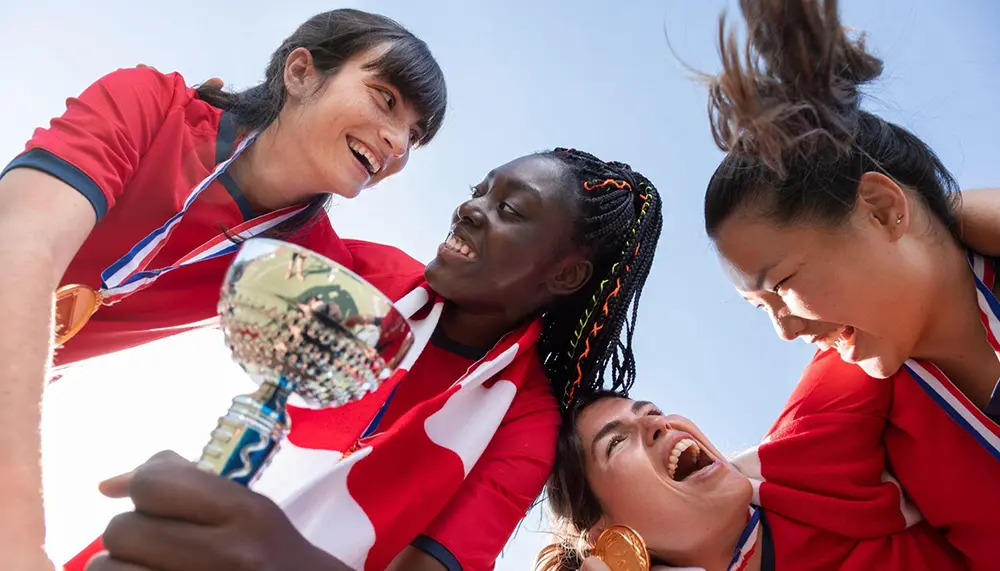



There is one crucial ingredient in a competitive environment, empathy. In the game of team sports, however, this quality could easily be the difference between chaos and cohesion.
When athletes and their coaches are empathetic towards each other, then they trust each other and resolve the conflicts very efficiently. Also, when teams face hardships, inspiring them becomes the job of empathetic leaders.

US soccer star Megan Rapinoe is the embodiment of empathetic leadership. She stands tall as an activist and a leader who can unite her team, realizing well that it takes a personal encounter with each of her teammates. During the 2019 FIFA Women's World Cup, she created an environment where each player was valued, hence winning that tournament.
Empathy is an integral part of leadership in elite sports. In fact, Psychology Today shows that the athletes coached by empathetic leaders perform significantly better and the coach earns their respect and commitment..Empathy influences the education and performance of athletes. The systematic review explains the impact of empathy in the sports environment.
Compassion has been shown to develop resilience, grit, cooperation, and coping with stress in the sport context. It emphasizes empathetic leadership as a catalyst that inspires teams to elevate performance.
LeBron James is a wonderful basketball player, but he is also an emotional intelligence master. LeBron has remained composed, urging his teammates to perform; this has made him one of the finest leaders in the history of the NBA. It was LeBron's emotional strength and leadership that made him lead the Cavaliers to a spectacular win against the Warriors in the 2016 NBA Finals when the Cavaliers were trailing 3-1.
Tennis superstar Naomi Osaka represents a perfect image of self-consciousness and emotional courage. Taking herself out of competition to better her mental state raised the consciousness of the rest of the world on the mental stress that players are subjected to. Her choice represents the call to know oneself's emotional walls and take proper care to live in good well-being.
Although it has its benefits, emotional intelligence is never at the top of the list when it comes to sports. Instead, the mentality of "toughing it out" means that an athlete suppresses feelings until they lead to long-term psychological problems. To break those stereotypes requires changing their mindset toward accepting the fact that emotional strength is just as important as physical strength.
The hidden superpower of successful athletes is empathy - the self-awareness to better manage pressure, the empathy that unites a team, or something else.
In the future, sports will not be measured anymore by faster times and higher scores but by healthier, more connected competitors as the value of empathy spreads throughout more athletes and coaches.
So, athletes, coaches, and fans of the game - remember: master emotions, which may be a game-changer.
Sear, P., PhD. (2023, July 17). Sport leadership has changed, and empathy has become an essential ingredient. Psychology Today https://www.psychologytoday.com/us/blog/empathic-minds/202306/empathy-lessons-from-elite-sport Regier, N. (2023, September 6). Compassion, sports performance, and leadership - next element. Next Element https://www.next-element.com/resources/blog/compassion-sports-performance-and-leadership/ Sepdanius, E., Shafie, M. S. B., Nor, M. a. B. M., Sidi, M. a. B. M., Sanuddin, N. D. B., Rifki, M. S., & Afriani, R. (2024). Moderation of empathy in sport on athletes’ education and performance: a systematic review. Retos, 59, 602–607 https://doi.org/10.47197/retos.v59.108325